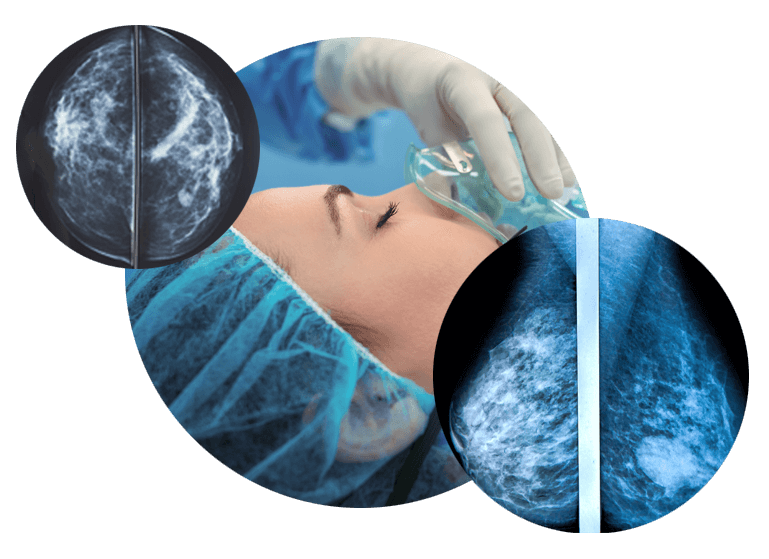Sentinel Lymph Node Biopsy For Breast Cancer
Lymph nodes are bean-shaped organs found all over the body, including the armpits, neck, and groin. They are part of a network of vessels called the called the “lymphatic system” that carries a clear fluid called “lymph” When breast cancer cells spread, they usually travel through the lymph to one or more lymph nodes (called sentinel lymph nodes) in the armpits.
During a sentinel lymph node biopsy (also called “SLNB”) a surgeon finds, takes out, and checks the sentinel lymph nodes for cancer cells. Knowing whether cancer is in the sentinel lymph nodes helps your doctor choose the right treatment for your breast cancer.
What happens during an SLNB?
The operation is usually done under general anesthesia.
There are 2 different techniques to find the sentinel node:
- Blue dye – For this technique, the doctor injects blue dye into your breast near the cancer in the operating room. The dye travels through the lymph and turns the sentinel node blue.
- A radioactive substance – For this technique, the doctor injects a radioactive substance into your breast near the cancer and the colored area around your nipple, before you go to the operating room. Then, a special device is used to find radioactive substances to locate the sentinel lymph node.
Most surgeons use just 1 technique, but some use both. After finding the sentinel nodes, the surgeon makes a small cut to take them out and sends them to a lab.
Most people do not have cancer in their sentinel lymph nodes. But if they do, a second operation might be needed to take out more nodes.
What happens after an SLNB?
After an SLNB, you might have pain, bruising, bleeding, or get an infection. Your doctor will prescribe pain relievers or other medicines to treat any symptoms.
If your doctor used blue dye, part of your breast will be blue until all of the dye disappears from your body. Your urine will also turn green for 1 day.
In rare cases, people are allergic to the dye used for SLNB. Your doctor will tell you about this risk and answer any questions you have before the operation. The allergic reaction happens in the operating room and is treated right away with medicines given through an IV.
If your doctor used a radioactive substance, the amount of radioactivity is very low and not harmful. It leaves your body quickly through your urine. You are not “radioactive” or dangerous to other people near you.

